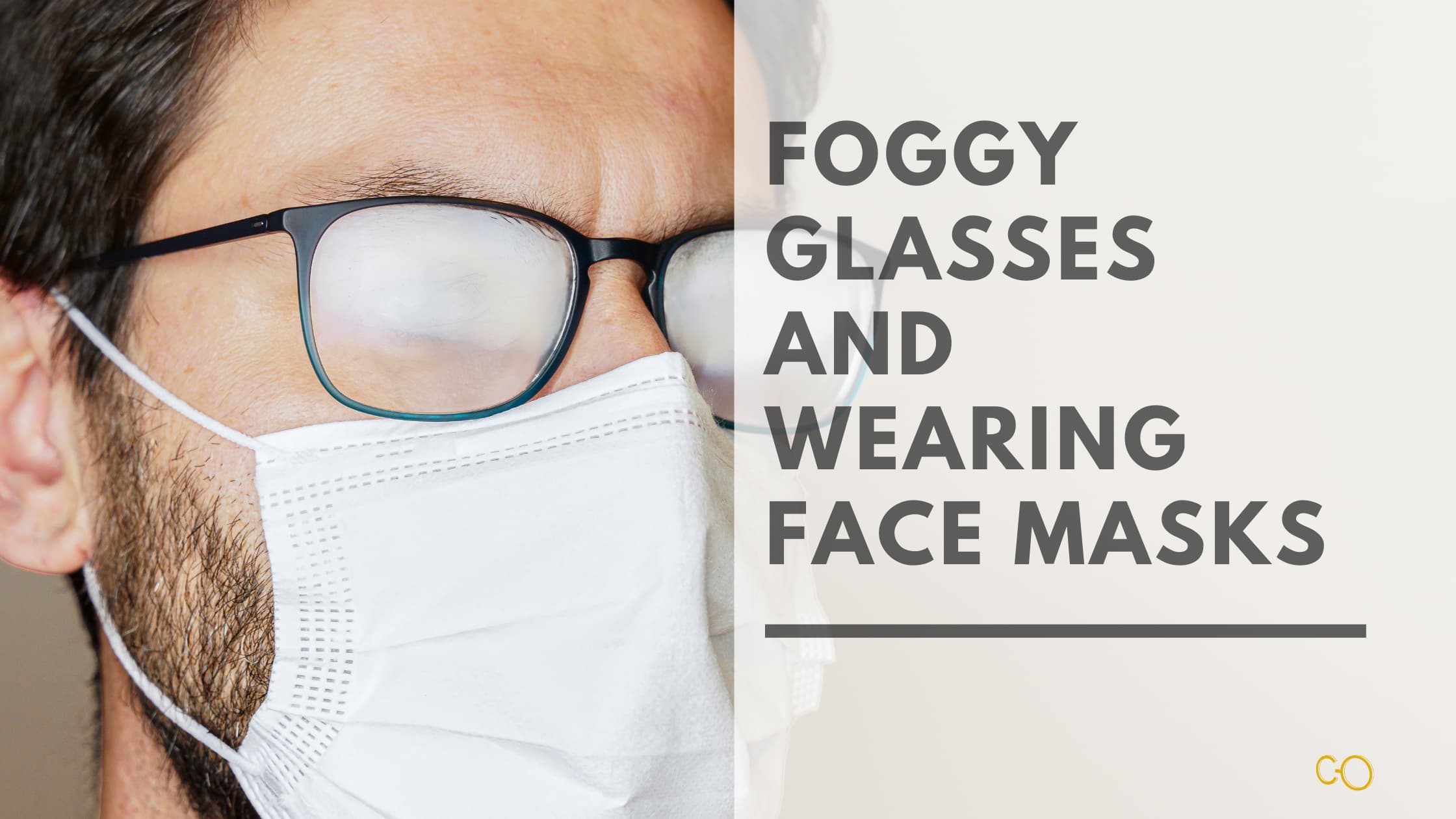Face coverings are recommended for use on a widespread basis. Depending on where you live, it may be compulsory to wear face coverings on public transport and some public spaces, which has become an essential part of everyday life. One concern that face masks have brought to the forefront for many: foggy glasses. If you wear glasses, you understand this pain. Foggy glasses aren’t just a matter of inconvenience. While you’re driving, foggy glasses could result in a crash, and foggy glasses, while you’re walking, could result in slips and falls.
Why do glasses fog up when wearing a face mask?
Due to the limited airflow, glasses fogging tends to be more common when wearing a medical or cloth face mask because your breath mostly escapes from the top of your mask. When you exhale, your warm breath comes into contact with your cooler lenses, which steams up your lenses and clouds your vision. This steam also creates excess moisture around your glasses, which reduces your nose pads’ grip and makes it easy for them to slip down your face.
6 Ways to avoid foggy glasses.
Make sure your mask fits snugly.
A tightly fitting mask is the first thing that you need to check. Not only does this help to keep you protected against any airborne particles, but it also stops too much breath from escaping and fogging your lenses. For the best fit, your mask should be snug against your nose and cheeks, and there shouldn’t be any slack or gaps for the air to escape. If your mask is not tight enough when you first put it on, try tightening the straps for a secure fit or opting for a smaller size.
Secure the mask around your nose
Securing your mask around your nose is another way to limit the amount of breath that escapes upwards. Try moving your mask further up your nose (if this is comfortable for you) and resting your glasses on top of it to help seal the mask. If this does not work, or your mask cannot be pulled this high, try using a small piece of surgical tape to secure the mask to the bridge of your nose. This helps form a seal to prevent your breath from escaping upwards.
Think your mask is too big? Tighten it with the ear loops
If your mask doesn’t fit tightly, you can try adjusting it yourself. If you have enough slack in the ear loops, try twisting them into an ‘X’ shape and then putting them around your ears. With the self-tying face masks, you can adjust it yourself so that the mask fits closer to your face — make sure you don’t tie them so tight that you get red marks behind your ears.
Use Soap, baby shampoo, or shaving cream
A 2015 research review trusted Source showed that washing eyeglasses with warm water and soap could help mask wearers avoid fogging. The following items can leave behind a film that acts as a barrier against the moisture:
- soaps
- baby shampoos
- some shaving creams
Try following these steps:
- Rinse your glasses with one type of soap and warm water.
- Let them air dry.
- Then, wipe them free of spots with a dry microfiber cloth.
If your glasses have any unique films, like ultraviolet or glare protection, talk with your optician before trying the steps above. Some cleaners could damage these lenses.
Use an anti-fog lens wipe or spray on your glasses.
After cleaning your lenses, you could try going over them with an anti-fog lens wipe or spray. These are specifically designed to repel condensation from your lenses to help prevent them from steaming up — something you’ve likely been enduring over the past several months.
They’re also effective at cleaning grease and dust around the frames while being gentle enough to use sunglasses, goggles, or glasses with special lens coatings without risk. Each wipe comes individually wrapped, perfect for popping into your bag, pocket or desk drawer for cleaning while on the go.
Adjust your glasses
It may seem a little counterintuitive, but pushing your glasses down on your nose a little will create more space between your lenses and your eyes, allowing for more air to circulate and keeping your breath from fogging up your vision.
What not to use?
The internet has so many tips and tricks for preventing foggy eyeglasses. For every suggestion that works, you’ll likely find some that don’t.
It’s best if you skip these de-fogging strategies. We’ll explain why.
Toothpaste
Many kinds of toothpaste are made with abrasive ingredients like baking soda. These grainy substances can scratch eyeglasses, which can be an expensive concern.
Spit
Swimmers and divers might also swear by this technique, but in a pandemic, using bacteria-filled fluids isn’t a good idea for many reasons. So, besides the obvious, spit will not stop fogging.
Vinegar
White vinegar can be an excellent all-natural cleaner around your house. It doesn’t belong on your eyeglasses. The solution’s high acid content can damage coatings on your glasses.
Call us on 0161 665 3673 to book an appointment with us now! Follow us on Facebook and Instagram @chaddertonopticians for the latest eye health news.


